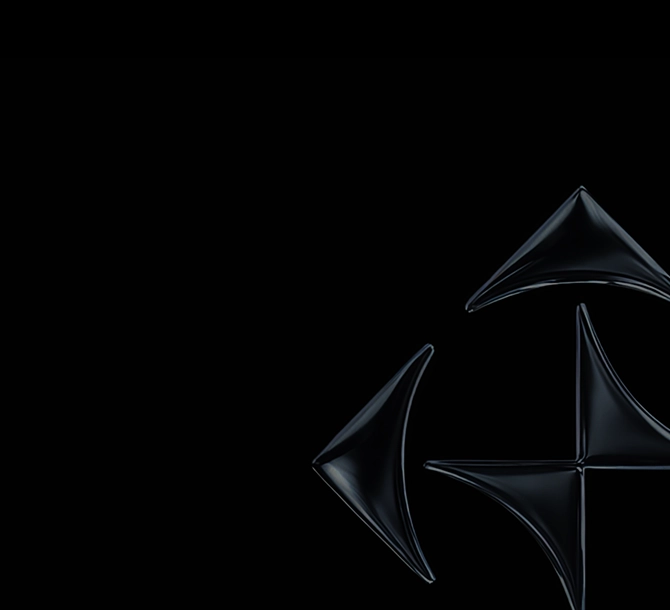What Is Labubu – and Why Does It Matter for Brands?
Labubu, the mischievous, “ugly-cute” character from Chinese toy giant Pop Mart, isn’t just another collectible: it’s a full-blown cultural phenomenon. What began as a quirky picture book sketch by Hong Kong artist Kasing Lung has quickly grown into a global sensation.
Since its debut in 2019, Labubu has won over Gen Z and seasoned collectors alike, thanks to its limited releases, playful design, and social media virality. TikTok alone hosts over a million #Labubu videos, while celebrities from Rihanna to Dua Lipa to BLACKPINK’s Lisa have flaunted Labubu charms on red carpets and social media feeds. Blind-box drops featuring ultra-rare figures fuel anticipation and exclusivity: a coveted “Secret” variant recently listed for nearly $2,000 on resale sites.

But with viral fame comes a new kind of threat. In this case, it's Lafufu, the counterfeit copycat flooding marketplaces, siphoning revenue, and blurring the lines between official and fake.
Lafufus: How Counterfeits Hijack Brand Momentum
What looks like a harmless dupe is actually a brand protection nightmare. Lafufu knockoffs closely mimic Pop Mart’s original design, from the packaging and color palette to even the placement of QR codes. These fakes are spreading rapidly across platforms like TikTok Shop, Shopee, and AliExpress, fueled by influencer-driven demand and impulse buying behavior.
In fact, Lafufu is going viral in its own right: some creators treat it as a budget-friendly alternative, while others repurpose Lafufu dolls for DIY customization, dressing them up and sharing their creations online. This cultural remixing further blurs the line between fan creativity and IP infringement, making it harder for Pop Mart to control the narrative and enforce their rights.

For example, the above TikTok video captioned “my labubu riding lafufu” racked up over 800,000 likes, with top comments reading “Why is it kind of cute…,” “Where can I buy this?” and “I love labubus but the prices are ladudu.” This last comment underscores the top reason why Lafufus are going viral: price.
Labubu figures now resell for hundreds or even thousands of dollars on secondary marketplaces, driving demand to feverish levels. Counterfeiters have been quick to seize the moment, flooding platforms with Lafufus listed at a fraction of the price, often before official products even launch. As a result, many fans are turning to Lafufu as an easy, affordable way to participate in the Labubu trend — even if that means sacrificing authenticity.
Spotting the Difference: Lafufu Red Flags for Consumers
When fakes like Lafufu are convincing enough to fool the untrained eye, authentic sellers face a greater risk of customer complaints, negative reviews, and lasting damage to brand trust. Equipping consumers with the knowledge to tell the difference isn’t just a service: it’s a strategic defense. Here’s some tips on how to tell the difference between a Labubu and a Lafufu:
- Packaging: Authentic Labubu boxes use muted, matte colors and display the official Pop Mart logo. Counterfeits often come in neon or off-tone colors with missing or incorrect branding.
- Labeling: Genuine products have a full-length product info label. Fakes typically feature cramped or missing text in a small corner.
- QR Code: Official figures include a QR code that links directly to Pop Mart’s website. Lafufu QR codes may redirect slowly or lead to suspicious or broken links.
- Authenticity Stamp: Real Labubus include a UV-activated authenticity stamp visible under blacklight. Counterfeits often omit this or use a generic, reused stamp.
- Figure Quality: Authentic Labubus have symmetrical ears, nine molded teeth, and consistent coloring. Lafufus tend to have uneven shapes, off-colors, and lower build quality.

As counterfeiters grow more sophisticated, even experienced collectors can be misled. By proactively educating consumers on telltale signs of authenticity, brands reduce the risk of post-purchase regret, reinforce brand credibility, and ultimately protect long-term customer loyalty.
Real Brand Risk: Why This Goes Beyond Toys
Labubu may be the latest victim, but it reflects a larger systemic issue. Any brand riding the wave of scarcity, fandom, and influencer hype is on an inevitable collision course with counterfeiters.
1. Brand Dilution at Scale
Lafufu fakes look close enough to deceive casual buyers but lack all the quality, safety testing, and brand promise behind the real product. Again, for companies like Pop Mart, this leads to long-term erosion of consumer trust, especially when fakes are linked to product failures or harmful materials. In fact, in a recent MarqVision survey, nearly three-quarters of brands pointed to reputation damage as the most challenging outcome of counterfeiting.

2. Customer Confusion and Legal Gray Areas
If a consumer receives a defective Lafufu from an unauthorized seller, they don’t blame the counterfeiter: they blame the brand. Without clear seller labeling and consumer education, these bad experiences muddy the waters, opening up potential legal risks when brands are held responsible for issues that they didn't create.
3. Fragmented IP Frontiers
While Pop Mart has held Labubu trademarks in China since its release, it has only recently begun securing protection in secondary markets such as the United Kingdom. That lag leaves critical enforcement gaps. Because copyright, design right, and trade dress rules vary by jurisdiction, and marketplaces spanning multiple countries offer varying levels of leniency, counterfeiters are able to exploit the cracks. The result for brand owners is a costly, slow-motion legal battle that struggles to match the speed and volume of the threat.
The Bigger Picture: Counterfeiting Is a Strategic Threat
The Lafufu phenomenon reveals an uncomfortable truth: counterfeiters are now able to follow the same exact strategies that brands use to grow. They monitor social trends and exploit drops, and as a result, they beat official channels to market. Without proactive IP protection, brands are left reacting instead of leading.
This isn’t just a toy problem. Whether you’re launching limited-run sneakers, cosmetics, or collectibles, the playbook is the same: and so is the risk.
What Brands Must Do Now
To defend against the next Lafufu, brands need to move beyond this type of reactive enforcement. That means:
- Real-time monitoring across global marketplaces, not just one or two.
- AI-powered image recognition to spot visual dupes as soon as they appear.
- Customs recordation and cross-border IP filings to close jurisdictional gaps.
- Consumer education that builds trust and reduces confusion.
At MarqVision, we help brands like yours detect and remove fakes at scale – before the fakes go viral.
Ready to see how we stop threats like Lafufu in real time? Book a free demo and discover how MarqVision turns IP enforcement into brand protection that works.
Stay up to date on the latest IP Protection content from MarqVision.
4 Enforcements a Week to 400: Scale Brand Safety with Marq AI

Don’t Just Find Counterfeits. Dismantle the Entire Network.

.png)
Discover the latest trends and challenges in IP protection

Take Control of Your Trademarks with MARQ Folio

Renew and Manage Your Trademarks Easily With MARQ Folio

We’re waiting to hear from you

See the best brand protection solution in action

Don’t let piracy steal your growth

Talk to us about your brand protection problems
















